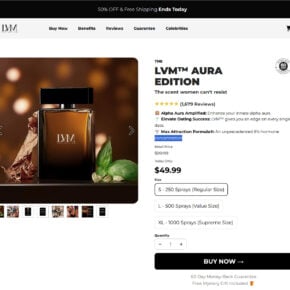Scams have become increasingly prevalent in today’s digital age, with fraudsters constantly devising new ways to deceive unsuspecting individuals. One such scam that has gained notoriety is the ‘United Nations Poverty Alleviation Scheme’ advance fee scam. This article aims to shed light on this fraudulent scheme, providing valuable insights into how it operates, what to do if you have fallen victim, and other relevant information.

What is the ‘United Nations Poverty Alleviation Scheme’ Advance Fee Scam?
The ‘United Nations Poverty Alleviation Scheme’ advance fee scam is a type of fraud that preys on individuals’ desire to help those in need and make a positive impact on the world. Scammers pose as representatives of the United Nations, claiming to offer financial assistance to individuals who are willing to contribute a small fee upfront. They often target vulnerable individuals who are struggling financially or are passionate about charitable causes.
How Does the Scam Work?
The ‘United Nations Poverty Alleviation Scheme’ advance fee scam follows a well-defined process that aims to deceive victims and extract money from them. Here is a step-by-step breakdown of how the scam typically operates:
- The scammer initiates contact: Scammers reach out to potential victims through various channels, including email, social media, or even phone calls. They often use official-sounding email addresses or create fake profiles to appear legitimate.
- Promising financial assistance: The scammer presents themselves as a representative of the United Nations and claims that the organization has selected the victim to receive a substantial sum of money as part of a poverty alleviation program.
- Requesting an upfront fee: To proceed with the financial assistance, the scammer requests the victim to pay a small fee upfront. They justify this fee as administrative costs or processing fees.
- Providing false documentation: To gain the victim’s trust, the scammer may send forged documents, such as official-looking letters or certificates, to make the scheme appear legitimate.
- Repeating the cycle: Once the victim pays the initial fee, the scammer may continue to request additional payments under various pretexts, such as taxes, legal fees, or bank charges. This cycle can continue until the victim realizes they have been scammed or runs out of money.
What to Do If You Have Fallen Victim?
Discovering that you have fallen victim to the ‘United Nations Poverty Alleviation Scheme’ advance fee scam can be distressing. However, it is crucial to take immediate action to minimize the damage. Here are the steps you should follow:
- Stop all communication: Cease all contact with the scammer and do not respond to any further requests for money or personal information.
- Report the scam: Contact your local law enforcement agency and provide them with all relevant information, including any emails, documents, or phone numbers associated with the scam.
- Protect your personal information: Change your passwords for all online accounts and monitor your financial statements for any suspicious activity. Consider freezing your credit to prevent the scammer from opening new accounts in your name.
- Scan for malware: Run a scan with Malwarebytes Free or any reputable antivirus software to ensure that your computer is not infected with malware that may have facilitated the scam.
- Spread awareness: Share your experience with family, friends, and on social media platforms to raise awareness about this scam and prevent others from falling victim.
Protecting Yourself from Scams
While scams like the ‘United Nations Poverty Alleviation Scheme’ advance fee scam can be sophisticated, there are several measures you can take to protect yourself:
- Be skeptical: Exercise caution when receiving unsolicited emails, messages, or phone calls. Verify the legitimacy of the sender before sharing any personal information or making any financial transactions.
- Research organizations: If you receive an offer of financial assistance from an organization, research it thoroughly. Check their official website, contact information, and reviews to ensure they are legitimate.
- Never send money upfront: Legitimate organizations and charities do not require individuals to pay money upfront to receive financial assistance. Be wary of any requests for upfront fees.
- Stay informed: Stay updated on the latest scams and fraud techniques. Regularly check official websites and news sources for information on new scams and how to protect yourself.
Summary
The ‘United Nations Poverty Alleviation Scheme’ advance fee scam is a fraudulent scheme that preys on individuals’ desire to make a positive impact on the world. Scammers pose as representatives of the United Nations, promising financial assistance in exchange for upfront fees. If you have fallen victim to this scam, it is crucial to take immediate action by ceasing all communication, reporting the scam, protecting your personal information, and spreading awareness. By staying skeptical, researching organizations, and never sending money upfront, you can protect yourself from falling victim to scams. Remember, awareness and vigilance are key in the fight against fraud.



